10+ Benefits of Going Dairy-Free
There are several important health reasons to consider going on a dairy-free diet, including to help control inflammation, reduce digestive issues, and to balance hormones. This article includes 10+ potential health benefits you may experience by going dairy-free.
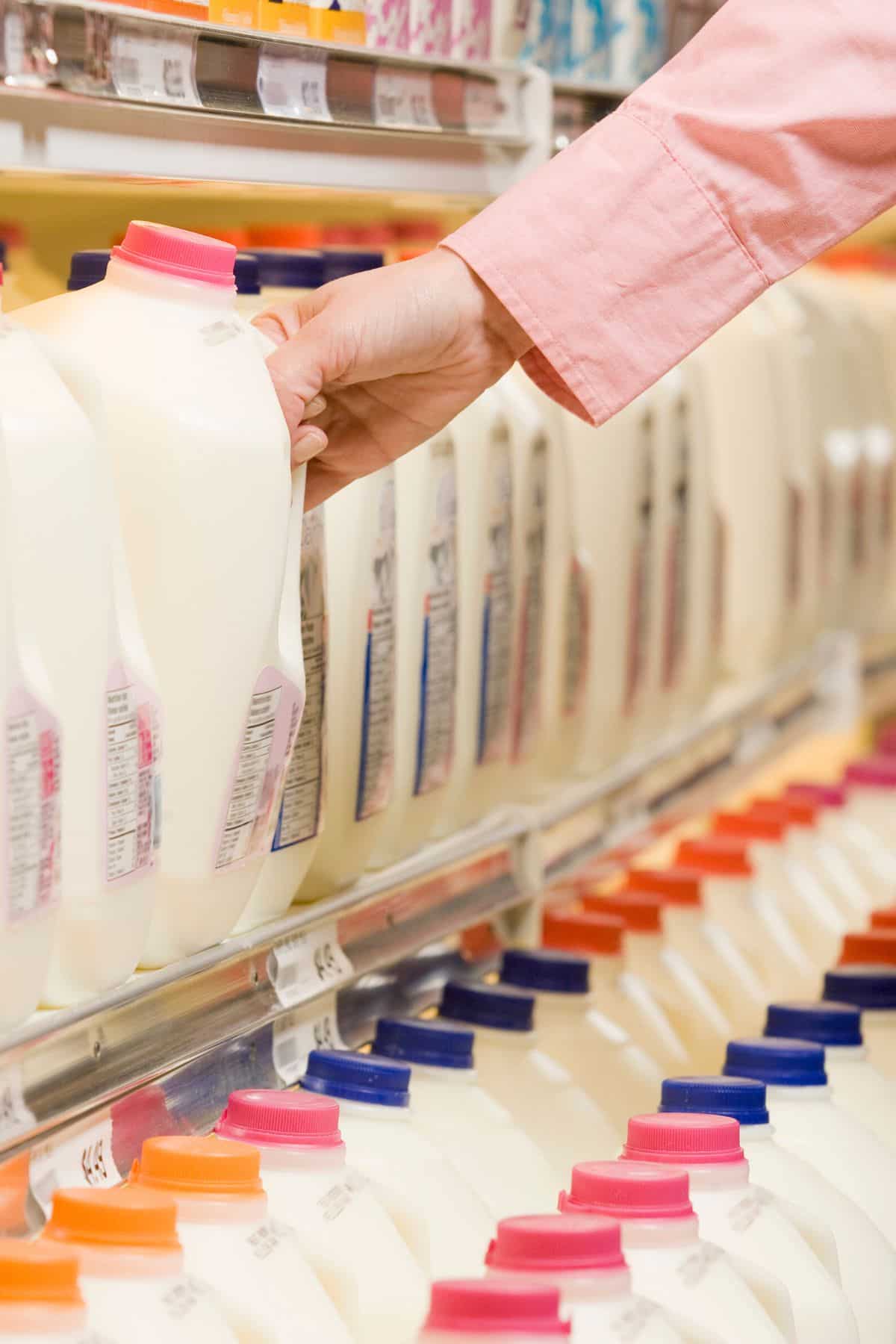
What is Dairy?
Milk is made by mammals to feed their young. Milk is a rich source of protein and growth hormones to develop a baby from infancy.
Humans are the only mammals that consume the milk of other animals. We are also the only animals to drink milk in adulthood. While dairy products can be a great source of protein, there may be other problems that come with consuming dairy.
This article outlines several important health reasons and potential health benefits you may experience on a dairy-free diet.
Why Go Dairy-Free?
According to many reputable health sources, going dairy-free is one of the ways that we can reduce inflammation, balance our hormones, and manage other troublesome symptoms.
While dairy isn’t necessarily troublesome for all people, it can be inflammatory. Additionally, up to 50 million Americans may be lactose-intolerant, which means that they lack the enzyme to properly digest the natural sugars in milk (lactose).
Most healthcare practitioners suggest doing an elimination diet for at least 4-6 weeks if you think you are having issues related to consuming dairy products. During this time period, you should cut out all forms of dairy from your diet, including butter, milk, sour cream, cream cheese, dairy yogurt, and any products containing dairy.
Then, you can monitor your symptoms and see if you feel better on a dairy-free diet (see my tips for how to go gluten-free and dairy-free).
Here are some more specific health reasons to consider going dairy-free.
1. Avoid Antibiotics & Growth Hormones
If you are American, then you certainly are familiar with the “Got Milk?” campaign. This is the conventional dairy industry’s campaign to convince us that milk and dairy foods are healthy for everyone.
And, while we do need some of the vitamins and minerals found in milk (but are widely available in other foods other than dairy), we don’t need to be exposed to the added antibiotics and hormones used in conventional dairy products.
The sad truth is that antibiotics are given to most dairy cows in mass quantities to help prevent infection. These antibiotics are ending up in conventional dairy products, meaning that we end up being exposed to those antibiotics as well. The use of antibiotics in the dairy industry may be one of the causes of antibiotic resistance.
In addition to the antibiotics given to cows that end up in their milk, humans are also being exposed to growth hormones when we consume conventional dairy products and dairy milk.
Conventional dairy operations give dairy cows a synthetic version of Bovine growth hormone (BGH) known as rBGH to stimulate milk production, further increasing the levels of IGF-1 in the milk supply. Higher levels of IGF-1 in humans have been linked to an increased risk of cancer.
Therefore, by going dairy-free, you may avoid these exogenous antibiotics and hormones (and the risks associated with them).
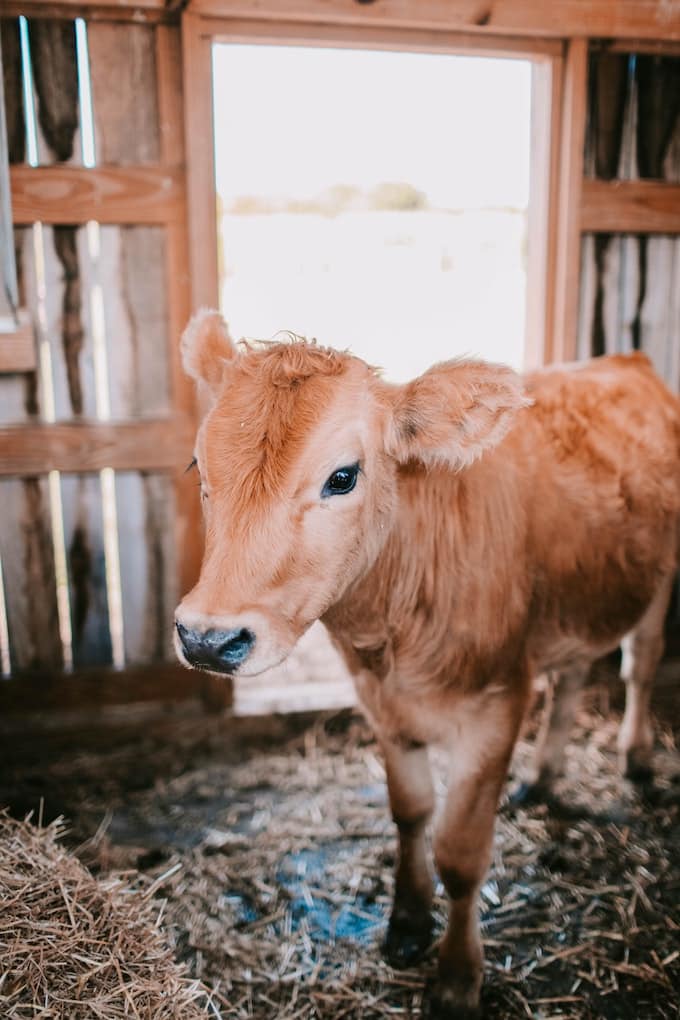
2. Reduce Insulin Levels
Insulin-like growth factor is in milk to help fatten babies. Therefore, consumption of dairy products can raise insulin levels.
For this reason, drinking milk is not recommended for those who need to avoid excess insulin exposure, such as those with diabetes, polycystic ovary syndrome (PCOS), and other serious metabolic disorders.
See my related article with the best diet for PCOS and how to reduce estrogen dominance.
Dairy products of all kinds, as well as yogurt, cheese, and anything with casein and whey, can elicit a significant insulin response. At least severals studies have looked at milk consumption and its effect on insulin levels and disease.
So, if you have blood sugar issues, then it might be worth considering a dairy-free diet to see if it helps.
You might also want to check out my article on how to do a sugar detox.

3. Cut Back on Excess Estrogen
If you are trying to balance your hormones, you might want to consider going dairy-free.
Dairy consumption promotes excess estrogen in the body due to it containing estrogen from female cows. Consuming dairy can account for up to 80% of dietary estrogens if are eating a lot of it. This is not good since excess estrogen from any source has been linked to an increase risk of female cancers.
Read my related article on how to eat for your menstrual cycle.
Men aren’t off the hook, either. Men are more at risk for developing testicular and prostate cancer when they have excess estrogen in their bodies. This hormonal imbalance can also cause mood swings and lead to unwanted reactions like acne.
So, whether you’re a teenage girl with menstrual problems, a perimenopausal woman with hormonal symptoms, or an overweight man, you may want to consider going dairy-free.
4. Reduce Digestive Upset & Bloating
An estimated 70% of the world’s population may have lactose intolerance. Even people who produce lactase, the enzyme needed to break down the lactose in dairy, can experience digestive upset when consuming dairy.
Common complaints from those who consume dairy (whether allergic, intolerant, or not) include bloating, irritable bowel syndrome (IBS), gas and malodorous flatulence, nausea, and chronic constipation or diarrhea.
Also, dairy is also on the list of the eight most common allergenic foods. A milk allergy is not that uncommon and can affect the immune system and digestive system. For this reason, you might have negative health symptoms after eating dairy or foods containing dairy products.
Check out some of my homemade plant-based milk recipes that are great for when you need a creamy liquid base (like for my Coconut Matcha Latte), but without the dairy:
- Cashew Milk
- Macadamia Nut Milk
- Oat Milk Creamer
- Pumpkin Seed Milk
- Vanilla Coconut Milk Beverage
- Vanilla Hemp Milk

5. Manage Respiratory Symptoms
Besides digestive upset, it is a known fact that dairy causes excess mucus production in the respiratory tract. This means that it may also be an asthma trigger. Avoidance of dairy may benefit people who have asthma or are prone to upper respiratory infections.
People have also reported dairy as a trigger for arthritis symptoms, rashes, acne, migraines, narcolepsy, and/or unexplained inflammation. Avoidance of dairy in these individuals can greatly reduce their symptoms.
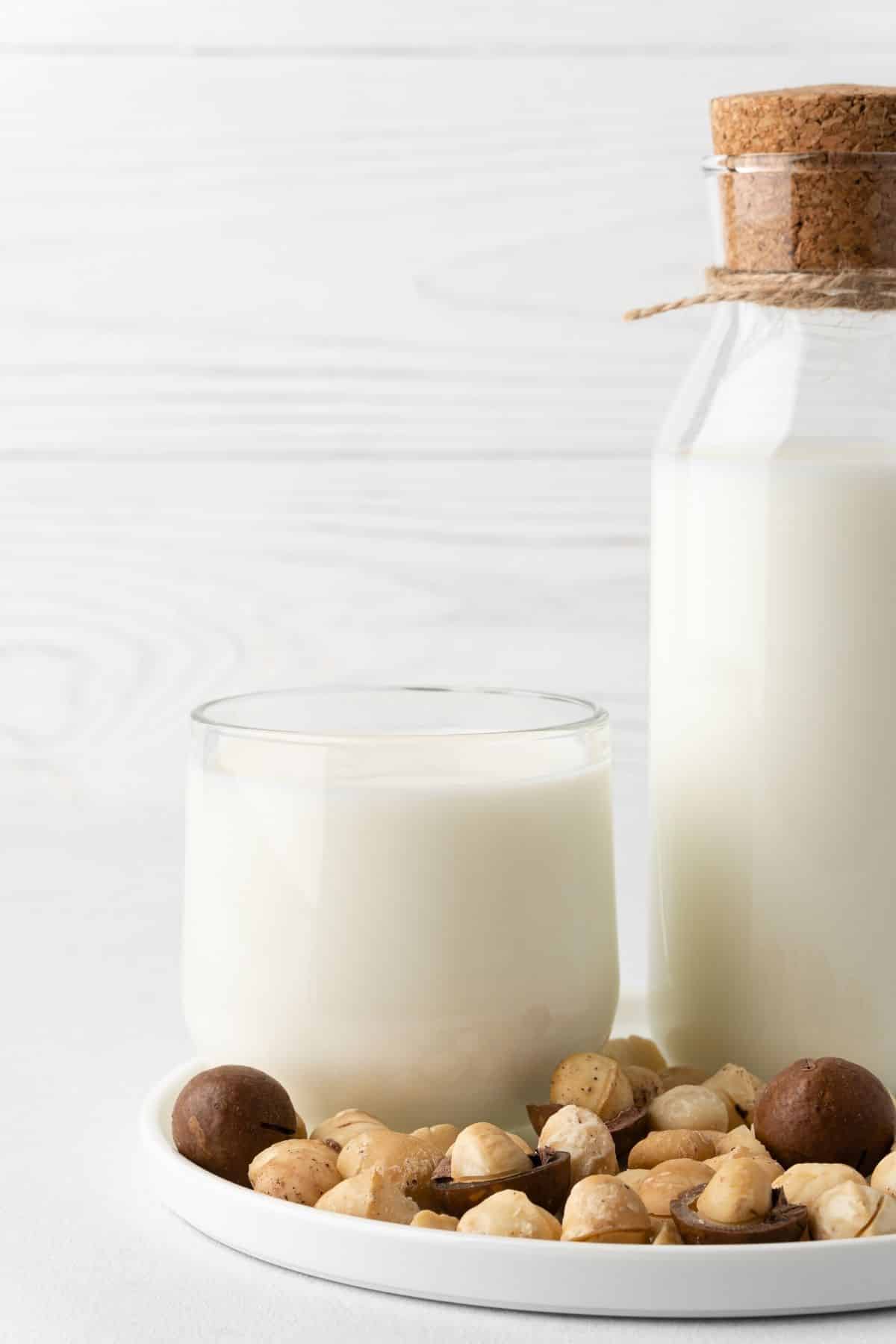
6. Minimize Inflammation
If you have certain underlying conditions such as digestive issues or sensitivities to milk proteins, consuming dairy can lead to an increase in inflammation in the body. While dairy doesn’t necessarily cause inflammation in everyone, it may have a negative effect on certain people.
Chronic inflammation is most definitely not healthy, and can result in troublesome symptoms such as join pain, headaches, and others.
7. Increased Energy
Once you get cow’s milk out of your system, you may even experience an increase in energy levels as your body adapts.
Although there is just not scientific evidence to suggest getting rid of dairy for disease prevention, it comes down to how you feel when you eat dairy? If you feel sluggish or achy after drinking milk or eating ice cream, then that is a clear indication that you might be having issues digesting it.
If you have no negative symptoms after consuming dairy, then you may be one of the lucky ones who can enjoy dairy without health risks.
8. Clearer Skin (Reduced Acne)
Dairy products are a known aggravator of acne, especially in teens and adults under 30. So, it’s worth trying a dairy-free approach for children and teenagers who are experiencing acne and skin issues.
You may also try changing the type of dairy you consume to see if that helps. Go for raw, organic, or full-fat versions to see if quality of dairy makes a difference. Or, try switching from cow’s milk products to goat’s milk or sheep’s milk to see if that helps.

9. Stronger Bones
Even though most people associate dairy products with bone health, there is some evidence that drinking too much milk may be associated with bone fragility.
While dairy products are indeed a good source of dietary calcium, there are other nutrients that are important for preventing osteoporosis. Calcium should be consumed alongside the nutrients vitamin D and vitamin K which help shuttle calcium into the bones (and not the body’s tissues).
Therefore, it’s just not enough to drink glasses of milk a day to have strong bones. And, in fact, drinking too much milk may be counterproductive.
10. Easier Weight Loss
If you are regularly consuming high-fat dairy products like cream and butter, then going dairy-free may help with weight loss. There isn’t a lot of scientific evidence for this one, but it’s more of an individual situation.
If you can tolerate dairy products then they may actually help with weight management. But, if you are dairy intolerant or you are overconsuming products like full-fat cream and ice cream, then going dairy-free may help reduce your overall calorie intake.
Bonus Benefits
There are additional non-health related potential benefits of going dairy-free. Some of these include an environmental benefit and improved animal welfare.
However, it should be noted that replacing dairy products with packaged dairy-free products may cancel the potential benefits. One way around this is to make your own dairy-free milks and ice creams.
Best Dairy-Free Recipes
Risk of Going Dairy-Free
It’s important to note that for people who don’t have a dairy allergy or dairy sensitivity, dairy products may be part of a balanced diet.
There are important nutrients in milk including protein, calcium, and other nutrients. So, if you decide to go dairy-free, you need to be sure to make up those nutrients with other foods or supplements. For instance, there are lots of other foods that contain calcium, including leafy greens, edamame, and almonds.
Whether you decide to cut out dairy, go vegan, or try a plant-based diet, you’ll need to make sure you’re getting a wide variety of foods to make sure you’re nutritional needs are met.
See my related article on the risks of a vegan diet.
FAQs
Dairy consumption isn’t the only way to get its beneficial vitamins and minerals into your diet.
Some excellent sources of calcium include kale (24% DV), sardines (21% DV), broccoli (9% DV), almonds (8% DV), and bok choy (7% DV).
You can also obtain calcium from fortified dairy alternatives or from calcium supplements.
See my list of the best vitamins for women in their 30s and the best vitamins for women over 50.
If you do decide to supplement with calcium, then be sure to find a quality calcium supplement that also includes K2 and vitamin D3, which all help direct calcium to be deposited in the bones, and not in the soft tissues.
If you know you can tolerate dairy and you don’t want to avoid it completely, make sure you are consuming dairy from certified organic, grass-fed sources. Raw and fermented milk from trusted sources is a great option to consider.
Make sure you opt for the full-fat version for some extra health benefits. Milk, cheese, yogurt, butter, ghee, and kefir from other animals such as goat, buffalo, sheep and camel are other alternatives as well.
Be cautious of whey and casein protein powders, even if they come from certified organic and grass-fed sources (see my list of the best clean protein powders).
Going dairy free means that you avoid any animal-based milk or milk products, including milk, yogurt, kefir, cheese, or ice cream. Choose non-dairy options of these products, often readily available at natural health food stores.
You don’t need to feel limited if you are on a dairy free diet. You can eat animal protein, whole grains, fruits, vegetables, nuts, seeds, beans, healthy fats, and eggs.
See my full list of clean eating foods and my list of the best dairy-free snacks. You might also want to check out my dairy-free recipe index.
No, eggs are not considered dairy. They are sometimes kept in the dairy section at grocery stores, but eggs do not have milk in them and are naturally dairy-free.
In other words, you can eat eggs even if you are on a dairy-free diet.
Not 100%. Most of the milk solids have been removed from ghee, but it is not safe for people who have severe dairy allergies. Ghee is sometimes used in dairy-free diets, though, but it may have trace amount of dairy protein.
More Dairy-Free Resources
Conclusions
There are significant reasons to consider going dairy-free. If you suspect that dairy may be causing health issues or troublesome symptoms, then consider cutting out dairy for at least a few weeks. Monitor your symptoms and see if you feel better once you stop consuming dairy.
Don’t forget to join my newsletter list to get exclusive clean eating recipes and tips. The newsletter is 100% free with no spam; unsubscribe anytime.
About the Author: Carrie Forrest has a master’s degree in public health with a specialty in nutrition. She is a top wellness and food blogger with over 5 million annual visitors to her site. Carrie has an incredible story of recovery from chronic illness and is passionate about helping other women transform their health. Send Carrie a message through her contact form.
Note: this post is for informational purposes only and is not intended as medical advice. Please consult your healthcare provider for recommendations related to your individual situation.


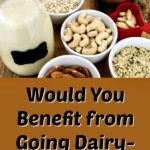
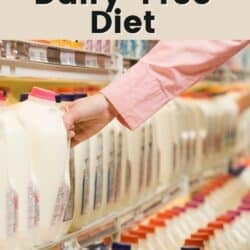

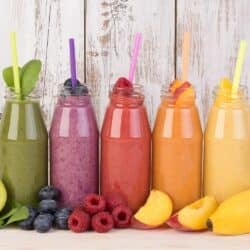

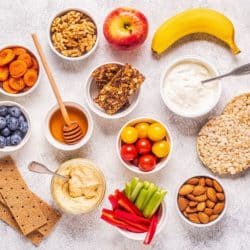

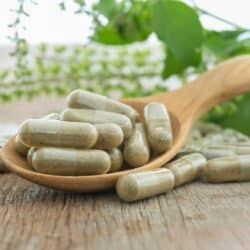
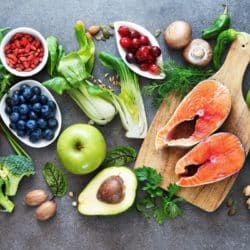
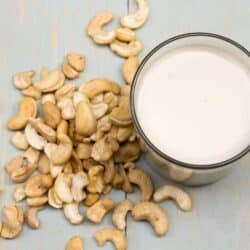





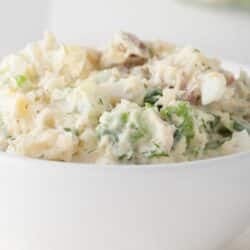
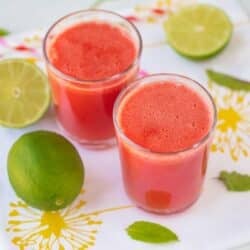





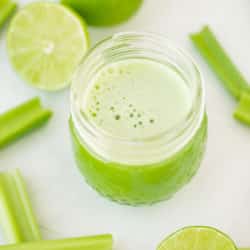
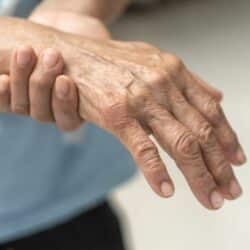


I love this!! Trying to do dairy free at well but it’s so hard but definitely want to try it again
I’ve reduced my dairy intake over the past couple years, but cheesy pizza is still my vice.
You’ve certainly convinced me! I prefer almond milk anyways, thanks for sharing!
I love this. I’ve told people this before, not as detailed. I want to eventually have a plant based lifestyle. Thanks for your post
I’ve been trying to lay off dairy for about a year now, and it’s quite hard! It’s easy to substitute ingredients at home, but sometimes in certain recipes the consistency is not the same. These are great reasons to try even harder! Thank you for sharing!
I agree, it is hard to find the right substitute especially when baking with dairy-free alternatives.
I didn’t realize there were so many advantages to going without dairy. I had no idea about it raising insulin levels or causing stomach upset. I learn something new every day. Your alternative milk recipes sound scrumptious!
Over the last 6 years I have eliminated dairy from my daily life with the exception of when I eat out. A lot of rich indian cooking involves dairy products and unless you cook at home it cannot be avoided. But over all I have been happier with no dairy in my life.
❥ tanvii.com
I became a pescatarian one year ago and am absolutely loving it. I would love to learn how to cook more vegan recipes as well! I am starting to learn how to make good swaps. I’ve been swapping out regular milk for soy milk for years because it just tastes so much better!
Great article! These are very valid reason and we’ve cut way back on dairy and try to get organic, grass fed when possible!
I was advised to eliminate dairy to assist with fixing leaky gut & to help my Hashimoto’s. It has certainly helped with my digestion & my Hashimoto’s symptoms.
Thanks for sharing that, Paula. SO glad you are finding some improvement!!!